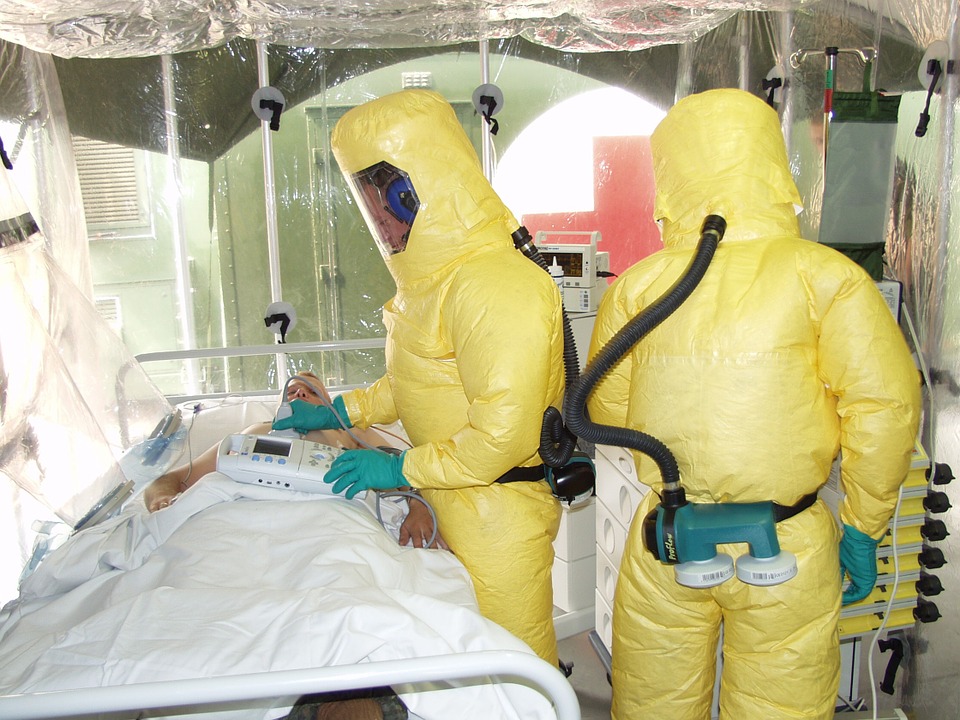Tuberculosis vaccine investigated as protection against corona
-
 Mihai Netea
Mihai Netea
The age-old BCG vaccine against tuberculosis—which was developed in 1921—might offer protection against the novel coronavirus . Professor of Immunology Mihai Netea is currently investigating how it works in a large-scale study amongst healthcare workers.
A 100-year-old drug that ensures that fewer people become infected with the coronavirus —it sounds too good to be true. It might just work, however, according to Mihai Netea, an infectious-disease specialist and immunologist at the Radboud university medical center. In collaboration with physician-microbiologist Marc Bonten of UMC Utrecht, he has started a study to explore whether hospital staff members who have received the ‘BCG vaccine’ for tuberculosis also have better protection against the coronavirus.
The idea did not just fall out of thin air. For years, Netea, who is also a professor of experimental internal medicine at Radboud University, has been conducting research on the additional protection that the BCG vaccine might provide. For example, in his 2018 publication in the journal Cell Host & Microbe, he demonstrated that, several days after being inoculated with the yellow-fever vaccine (which contains a live, but weakened form of the virus), people had fewer virus particles in their blood if they had also received the BCG vaccine in the past. The notion is that the vaccine reinforces the native immune system, which can be used for a wide range of purposes.
In a Skype conversation, Netea expressed the hope that this reinforcement could also enhance resistance to corona infections. ‘We expect that 25% fewer infections will occur in study participants to whom we administer the BCG vaccine. This is a cautious estimate: Previous studies with other infections have indicated 30% to 70% fewer cases’.
Side effects
The study that is now being started aims to clarify whether there actually is a favourable effect. Netea and Bonten are trying to convince 1000 staff members from hospitals throughout the Netherlands to participate. At each hospital, half of the participants will receive the vaccine, and the other half will not. After several months, the researchers hope to be able to see differences between the two groups in terms of the number of corona infections. Netea states, ‘I hope that we’ll have the first results in three or four months’.
It thus would still be months, if not years, before a ‘real’ corona vaccine could reach the market. Although such a vaccine—which multiple labs in different countries are currently working hard to develop—will probably be quite a bit more effective, it will have to be developed from the ground up. Moreover, it cannot be brought to the market until it has undergone extensive testing for side effects and potential long-term negative effects.
‘The tuberculosis vaccine has been in use for nearly 100 years, and it is very safe’.
In this regard, the BCG vaccine has a major head start. Netea explains, ‘It’s been in use for nearly 100 years. It’s very safe, and it has only a few side effects’. In many cases, it does cause a scar at the injection site, which tends to fester.
According to Netea, if the outcomes of the BCG trial are positive, the vaccine could be used more broadly in the fight against the coronavirus. ‘But that will ultimately be up to the government, and not us. Moreover, not many vaccines are available at this time in the Netherlands, given that tuberculosis does not occur here. The production would thus have to be considerably upscaled’. Most of the BCG vaccines are currently being given to people who are travelling to high-risk areas for tuberculosis, or to the children of parents from such areas.
Negative results
There is obviously a chance that the results of the study will be negative, like the vaccine having no effect, or even a harmful effect. One of the hypothesised dangers of the coronavirus is that the immune-system will respond to it too strongly, leading it to produce an excess of exudate, causing the patient’s lungs to ‘drown’.
Could the BCG vaccine spark such an overreaction in the body by ‘boosting’ the defence system? Netea doesn’t think so. ‘We know that the vaccine does provide protection against serious flu, in which the symptoms are comparable to those of the coronavirus . But we can never be 100% certain’.
Moreover, Netea warns that those who have ever had a BCG vaccination or who have had tuberculosis in the past should not think that they have an advantage. ‘Previous studies have indicated that the favourable, broad protective effect of BCG disappears after two years at the most’.
Ebola drug also tested
Physicians are currently using two existing drugs to fight corona infections. The most important of the two is the anti-malaria drug chloroquine, which has been in existence since the 1980s. ‘We know that chloroquine—and its less toxic sibling, hydroxychloroquine—has an anti-viral function’, explains Rob ter Heine, a hospital pharmacist and clinical pharmacologist at the Radboud university medical center.
Chloroquine immobilises the machinery in cells that viruses and bacteria in order to propagate. In the lab, the drug also appears to reduce the propagation of the coronavirus.
The same applies to a drug that physicians are using against the coronavirus : remdesivir, a medication against the disease Ebola, which is still in the development phase, but that has been tested on humans with Ebola. Remdesivir disguises itself as a building block for RNA, a DNA-related substance that is also present in the coronavirus, but it has been crippled. The result is that the RNA-duplication is blocked, and viruses can no longer propagate. One disadvantage of this Ebola drug, Ter Heine notes, is that it is difficult to obtain.

Moreover, he continues, the ability of these drugs to inhibit coronaviruses has been proven only in the laboratory. It is not yet clear how effective the drugs could be for real patients. ‘People are not treated with these drugs until they have been admitted to hospital. In that phase of the infection, the virus particles might no longer be the greatest problem’.
Ter Heine is referring to the inflammatory response in the lungs that is experienced by seriously ill corona patients. For this reason, researchers are now examining whether there might be other drugs that are not aimed at the virus, but that could prevent or inhibit such lung damage.
At this time, emphasises Ter Heine, it is not possible to make statements at any level of certainty with regard to the effectiveness of any drug against COVID-19. ‘This disease is still so new that we do not know much about it. Only long-ranging, scientifically designed studies will be able to clarify what does and does not work. Our insights are literally changing from one day to the next’.



